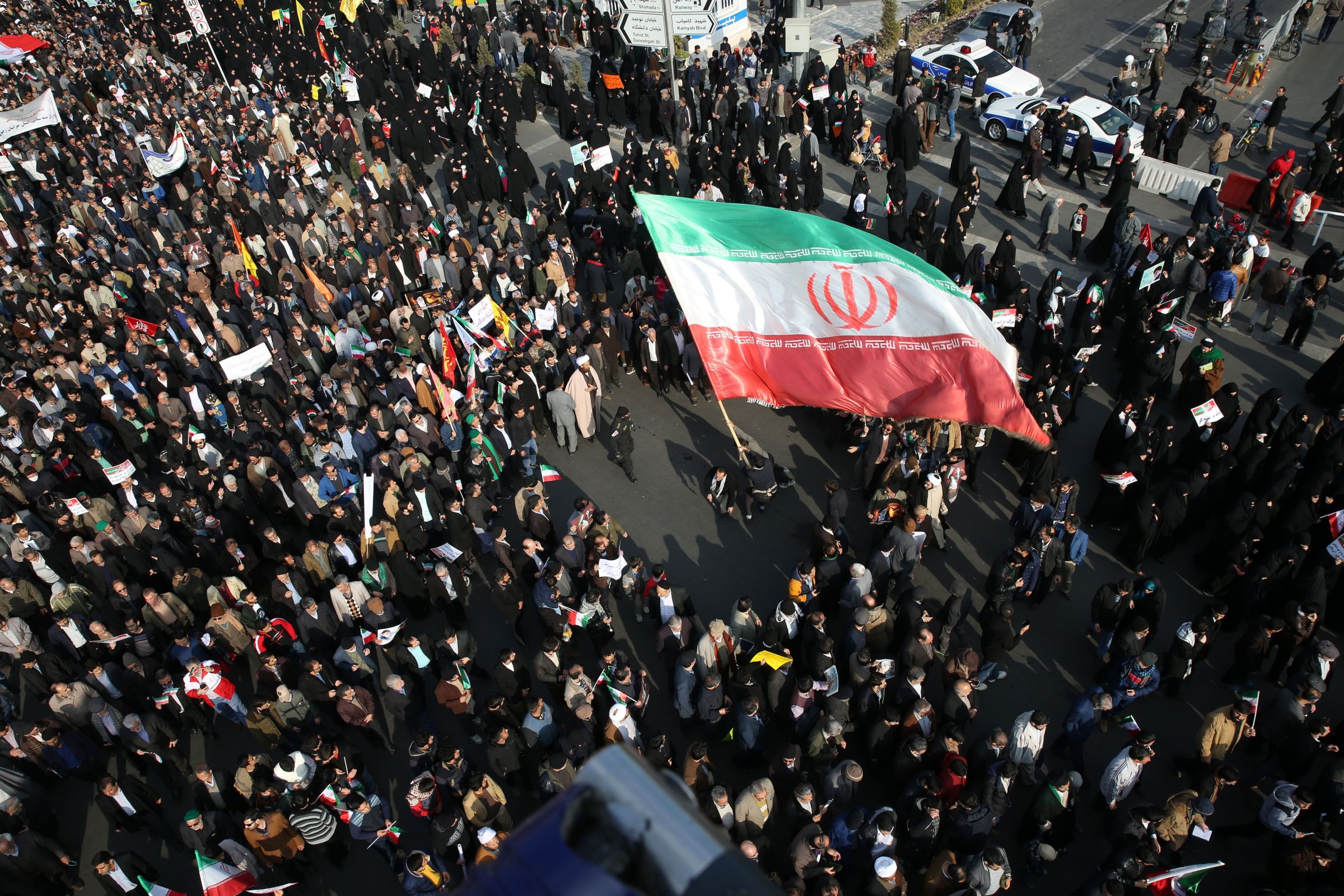
Ambassador Sherman served as Under Secretary of State for Political Affairs from 2011-2015 and was the lead negotiator for the Iran nuclear agreement. She is now Senior Counselor at Albright Stonebridge Group.
President Donald Trump has taken aim once again at the Iran nuclear deal following the outbreak of widespread protests in towns and cities there, renewing the possibility that the United States might walk away from the landmark multilateral agreement. The president and his allies are undoubtedly inclined to think that now is a good time to kill the deal and that doing so might help the Iranians taking to the streets to protest their government. But this would be a fundamental misreading of the situation, for at least three reasons.
First, the Iran deal is wildly popular among the Iranian people. They saw the deal as an important step in improving the economy, a key underlying grievance of the protests. If the president kills the deal, he will be giving a gift to the hardliners. The Iranian Revolutionary Guard Corps, which opposed the deal and virtually owned the black market during the time of the nuclear sanctions, will feel vindicated, arguing that only military might matters. Rather than weakening the IRGC’s budget to support Hezbollah, Hamas, Houthis and Iran’s position in the Middle East, President Trump will strengthen their hand within the government.
Second, although the Iranian government is now trying to place blame on outside forces, including the United States, it has not yet succeeded in doing so. If President Trump kills the deal, the Iranian government then will have the outside enemy that it needs to foment the nationalism and resistance ideology that has been so helpful to government control since 1979. “Death to America” has always been the default for the Iranian regime. At this moment, calls by Iranians for an end to their own repressive regime may well be overtaken by a return to resistance against America. Inserting America into the forces inside Iran will not help the Iranian people, but it will help government oppression.
Third, the Iran deal helped create the current circumstances, at least in part. The deal set rising expectations that the high unemployment would be diminished; that the majority of Iranian citizens who are under the age of 35 would have a better future; that President Rouhani would get the country on a path to greater modernity and opportunity. The reality, which we pointed out to the Iranians during the negotiations, was that lifting of nuclear sanctions would only get them part of the way to a better future. That’s because businesses make investment decisions based on risk, and the lifting of nuclear sanctions was a major but not sufficient basis for improvement. Iran’s actions in the Middle East and its human rights abuses at home, along with the state sponsorship of terrorism, opaque and uncertain rule of law, corruption, a weak banking system and failure to stem money laundering practices would all remain steep barriers to investment.
Fundamentally, of course, President Trump should not want to give the Iranian regime license to return to the path that would allow Iran to obtain a nuclear weapon. Not only does such a path not help the Iranian people, it poses a very serious threat to our national security. If President Trump truly wishes to support the Iranian people, there are several steps he can take.
First, his administration should work multilaterally, including at the United Nations, to stand for human rights including freedom of speech, assembly, equal rights for women and a right to earn a decent living and raise and educate families in all nations, including Iran. Second, the Trump administration should ensure we walk our talk by ceasing its attacks on the press here in the United States. Third, fully funding and staffing the State Department and encouraging the use of diplomacy, backed by a credible threat of force, will signal to Iran and the world that America is back in the business of engaging in the world to solve problems. Fourth, make use of public diplomacy to support access to the internet, social media, student exchanges, cultural and sports exchanges to support the aspirations of the Iranian people and people everywhere. Fifth, end the ban on visas for Iranian citizens interested in traveling to the United States, a ban which is a propaganda gift to the regime. Finally, continue sanctions on human rights abuses, state sponsorship of terrorism, ballistic missiles capable of carrying nuclear weapons and other malign activities, while recognizing that such sanctions alone rarely if ever stop any bad behavior. Instead, the sanctions serve to get parties to the negotiating table, which is where the real work begins.
The Iranian people are speaking for themselves. We should not attempt to speak for them or give the government a convenient rallying cry that obfuscates the regime’s responsibility for what is occurring. None of us knows what will happen in the coming days. What is important is that President Trump not take actions that get in the way of the voices of the people of Iran. Killing the Iran deal will do just that.
More Must-Reads from TIME
- Donald Trump Is TIME's 2024 Person of the Year
- Why We Chose Trump as Person of the Year
- Is Intermittent Fasting Good or Bad for You?
- The 100 Must-Read Books of 2024
- The 20 Best Christmas TV Episodes
- Column: If Optimism Feels Ridiculous Now, Try Hope
- The Future of Climate Action Is Trade Policy
- Merle Bombardieri Is Helping People Make the Baby Decision
Contact us at letters@time.com